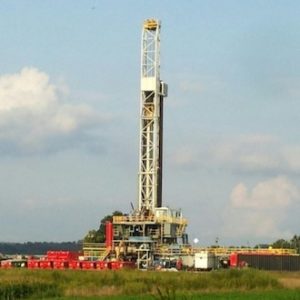New Study Warns of Health Risks for Pregnant Women Who Live Near Fracking Operations
Posted on Dec 20, 2017 | Comments 0
 A new study led by Janet Currie, the Henry Putnam Professor of Economics and Public Affairs at Princeton University in New Jersey, provides evidence of health risks for pregnant women and their babies who live within two miles of hydraulic fracturing operations.
A new study led by Janet Currie, the Henry Putnam Professor of Economics and Public Affairs at Princeton University in New Jersey, provides evidence of health risks for pregnant women and their babies who live within two miles of hydraulic fracturing operations.
Hydraulic fracturing or fracking involves forcing water and other chemicals into shale rock to fracture it which allows the gas or petroleum trapped in the shale to be extracted. Some areas have banned fracking over concerns about air and water pollution. According to the authors, of the 4 million babies born each year in the United States, about 29,000 of them are born to mothers who live within a half mile of a fracking operation.
Using records of more than 1.1 million births in Pennsylvania, a state with widespread fracking operations, the study found that infants born to mothers who lived within six tenths of mile from a fracking site were 25 percent more likely than other babies in the state to be born with low birthweight. Low birthweight babies have increased risk of asthma and infant mortality. And low birthweight babies tend to have lower academic achievement later in life.
The study found that infants born to mothers who lived between six tenths of a mile and two miles of a fracking site also had greater risk of low birthweight babies but the risk was reduced by as much as half compared to mothers who lived within six tenths of a mile from a fracking site. Babies born to mothers who lived more than two miles from a fracking site were found to have no greater risk for low birthweight.
 Professor Currie stated that “given the growing evidence that pollution affects babies in utero, it should not be surprising that fracking, which is a heavy industrial activity, has negative effects on infants.”
Professor Currie stated that “given the growing evidence that pollution affects babies in utero, it should not be surprising that fracking, which is a heavy industrial activity, has negative effects on infants.”
Dr. Currie joined the faculty at Princeton University in 2011 after teaching at Columbia University and the University of California, Los Angeles. She holds bachelor’s and master’s degrees in economics from the University of Toronto and a Ph.D. in economics from Princeton University.
The study, “Hydraulic Fracturing and Infant Health: New Evidence from Pennsylvania,” was published on the website of the journal Science Advances. It may be accessed here. Co-authors of the study are Michael Greenstone, a professor of economics at the University of Chicago and Katherine Meckel, an assistant professor at UCLA.
Filed Under: Research/Study








